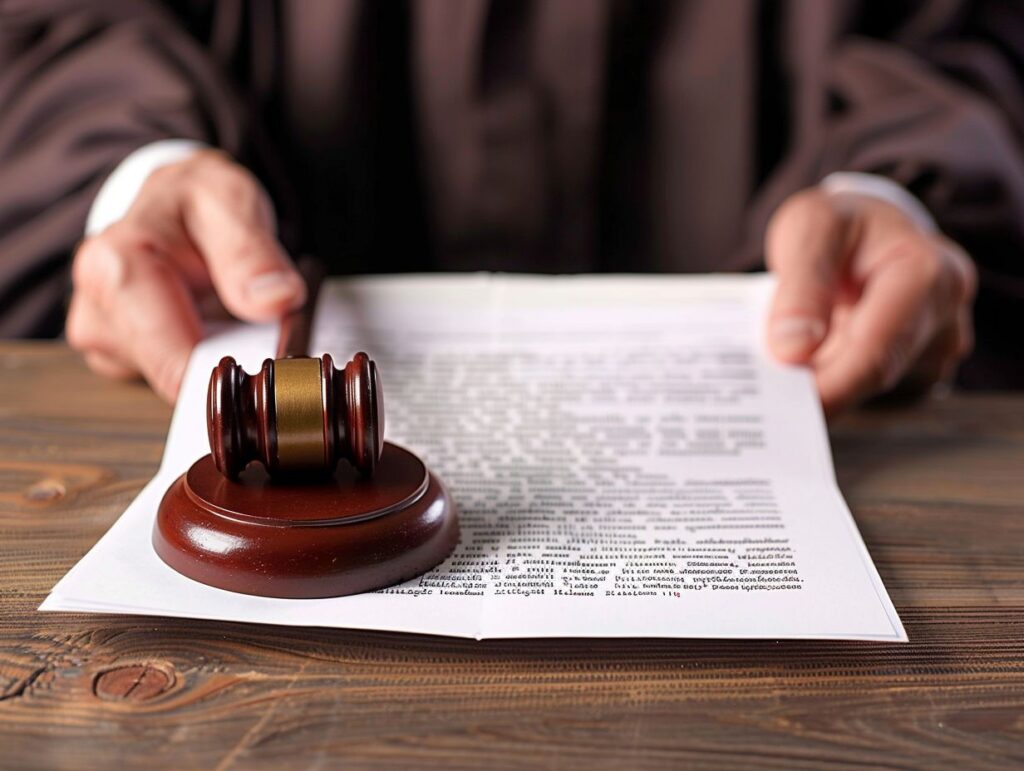Losing a loved one is always a devastating experience, but it can be even more heart-wrenching when their death was caused by someone else’s negligence or intentional harm.
In Florida, the law allows certain family members to file a wrongful death claim to seek justice and compensation for their loss.
This article will guide you through the essential information you need to know about handling wrongful death claims in Florida, from determining who can file a claim to understanding the grounds and process for filing.
What Is Wrongful Death?

Wrongful death is a legal term that describes a situation in which a person’s death is caused by the negligent, reckless, or intentional actions of another party. This can lead surviving family members to pursue a lawsuit or claim for compensation.
This concept covers various scenarios, including medical malpractice cases where a healthcare provider’s negligence leads to a patient’s death, and car accidents where a driver’s reckless actions result in fatal outcomes. Wrongful death claims in the legal field typically aim to hold the responsible party accountable for their actions and offer financial support to the deceased person’s dependents.
State laws dictate the specific procedures and criteria for bringing forth such claims, detailing who is eligible to file, the potential damages that may be awarded, and the statute of limitations for initiating a case.
Who Can File a Wrongful Death Claim in Florida?
In Florida, a wrongful death claim can be filed by specific family members of the deceased individual, typically through a personal representative appointed to act on behalf of the estate and the surviving family members.
1. Surviving Spouse
The surviving spouse has the right to file a wrongful death claim to seek compensation for the loss of their partner, with the assistance of an attorney to navigate the legal process.
This type of claim allows the surviving spouse to pursue damages for a range of losses, including the loss of companionship, love, and emotional support that their partner provided.
Along with these non-economic damages, the surviving spouse may also be able to seek compensation for the financial support that they have been deprived of due to the untimely death of their partner. These damages aim to help the surviving spouse cope with the emotional, practical, and financial challenges that arise from losing their loved one.
2. Children
Children of the deceased person can also file a wrongful death claim, seeking damages for the loss of parental guidance and support as family members. This type of claim allows children to seek compensation for the emotional suffering caused by the untimely loss of their parent, as well as the financial impact of losing a caregiver.
An attorney plays a crucial role in guiding these young individuals through the legal process, ensuring their rights are protected and helping them navigate the complexities of filing a wrongful death claim. Attorneys skilled in handling these cases understand the unique challenges children face in dealing with such traumatic events, and they work tirelessly to secure a fair settlement that takes into account all aspects of the child’s loss.
3. Parents
Parents of a deceased child have the option to pursue a wrongful death claim if negligence or a wrongful act is believed to have caused the child’s death, with the goal of obtaining compensation for their loss. This legal option not only offers a way for parents to seek accountability but also enables them to seek compensation for the emotional and financial hardships they have faced.
The emotional toll of losing a child can be severe, resulting in deep grief, sadness, and potentially even psychological trauma. On the financial side, parents may encounter unexpected costs such as medical bills, funeral expenses, and loss of earnings.
Navigating the legal procedures involved in a wrongful death claim can be intricate, underscoring the importance of retaining the services of a skilled attorney to ensure a favorable outcome and equitable compensation.
4. Other Relatives
Other relatives, such as siblings or extended family members, may also be eligible to file a wrongful death claim, depending on their relationship with the deceased and the state law provisions facilitated by the personal representative.
In certain cases, if the deceased did not have a surviving spouse, children, or parents, siblings or grandparents might have the right to pursue a claim. Extended family members like aunts, uncles, or cousins could also potentially be considered eligible in some jurisdictions.
It is crucial for these individuals to understand the specific laws governing wrongful death claims in the state where the incident occurred. Seeking legal guidance from a qualified attorney specializing in wrongful death cases is highly recommended to navigate the complexities of the legal process and potential damages available.
What Are the Grounds for a Wrongful Death Claim in Florida?

A wrongful death claim in Florida can be established on various legal grounds, such as negligence, intentional harm, and strict liability. These grounds typically involve a breach of duty or wrongful act that resulted in the death of the individual.
1. Negligence
Negligence occurs when a party fails to fulfill their duties or breaches their duty of care, leading to a wrongful death.
In the realm of medical malpractice, negligence can manifest in various forms, such as misdiagnosis, surgical errors, or medication mistakes. For instance, if a healthcare provider fails to diagnose a serious condition in a timely manner, resulting in the patient’s death, it could be considered a case of medical negligence leading to wrongful death.
Similarly, in car accidents, a driver texting while driving or failing to obey traffic laws can be deemed negligent if their actions directly cause a fatal collision, prompting a potential wrongful death claim by the victim’s family.
2. Intentional Harm
Intentional harm involves deliberate actions that result in the death of another person, leading to a wrongful death lawsuit to seek damages. In cases of intentional harm, the legal implications are severe, as they involve proving that the harm was intentionally caused. The burden of proof falls on the plaintiff to show that the defendant’s actions were purposeful and resulted in harm.
Examples of intentional harm include assault, battery, and murder, where the perpetrator knowingly inflicts harm on another. Damages that can be claimed in such cases may include compensatory damages for medical expenses, lost wages, and pain and suffering, as well as punitive damages to punish the wrongdoer and deter similar conduct in the future.
3. Strict Liability
Strict liability is relevant in wrongful death claims, where a party is deemed accountable for the death regardless of negligence or intent, commonly seen in cases involving defective products or hazardous activities.
This legal principle holds individuals or entities responsible for the harm caused, even if they took all necessary precautions to prevent it.
For example, if a person passes away due to a faulty airbag in their car, the manufacturer could be held strictly liable for the death, regardless of whether they were negligent in producing the airbag. In such instances, the family of the deceased may pursue compensation for medical expenses, funeral costs, lost income, and emotional distress through a wrongful death suit based on strict liability.
What Damages Can Be Recovered in a Wrongful Death Claim in Florida?
Various types of damages can be recovered in a wrongful death claim in Florida, including economic damages, non-economic damages, and punitive damages. These damages are intended to provide compensation and financial support to the surviving family members.
1. Economic Damages
Economic damages in a wrongful death claim are the calculable financial losses incurred by family members. These losses typically include lost wages, medical expenses, and funeral costs.
Lost wages are a significant part of economic damages, considering the potential future earnings of the deceased. This encompasses not only the actual income the individual would have earned throughout their life but also possible advancements and benefits.
Medical expenses, such as hospital bills, rehabilitation costs, and ongoing care, are also taken into consideration. Additionally, funeral and burial expenses, which are concrete costs associated with the loss, are included in the assessment of damages. The process of quantifying these damages often involves examining past earnings, estimating future earnings, and accounting for expenses directly linked to the death.
2. Non-Economic Damages

Non-economic damages encompass the intangible losses experienced by surviving family members, such as emotional suffering, loss of companionship, and pain and suffering.
These non-economic damages serve as a crucial element in compensating individuals for the emotional toll of a tragedy or loss. While economic damages address quantifiable costs like medical bills and lost wages, non-economic damages focus on the less tangible yet equally important aspects of a loss.
The assessment of non-economic damages can be intricate, given the absence of fixed guidelines for measuring emotional distress or loss of companionship. Examples of what falls under this category include mental anguish, loss of enjoyment of life, and disfigurement or disability.
3. Punitive Damages
Punitive damages may be awarded in a wrongful death lawsuit to punish the responsible party for particularly egregious conduct and to deter future wrongful acts.
These damages serve as a form of punishment beyond compensatory measures, aiming to hold the defendant accountable for their actions while sending a strong message to others in society. They are typically granted in cases where the actions of the defendant were intentional, malicious, or showed a reckless disregard for the safety and well-being of others.
For instance, in cases involving gross negligence, fraud, or intentional harm, punitive damages may be imposed to ensure justice is served and to prevent similar misconduct in the future.
What Is the Statute of Limitations for Filing a Wrongful Death Claim in Florida?
In Florida, the statute of limitations for filing a wrongful death claim is typically two years from the date of the deceased person’s death, as mandated by state law.
This time limit serves as a crucial aspect of the legal system, ensuring that claims are brought forward in a timely manner to uphold fairness and prevent cases from lingering indefinitely. There are exceptions to this rule, such as instances of fraud, concealment of evidence, or the discovery of new information after the initial deadline has passed. In such cases, individuals may still have the opportunity to pursue legal action.
It is essential for individuals navigating a wrongful death claim to seek the guidance of an experienced attorney who can help navigate these complexities and ensure that all deadlines are met in accordance with the law.
What Is the Process for Filing a Wrongful Death Claim in Florida?
The process of filing a wrongful death claim in Florida includes several important steps. These steps typically involve:
- Gathering evidence
- Submitting the claim through a personal representative
- Engaging in settlement negotiations
- Potentially proceeding to trial in civil court with the help of an attorney
1. Gathering Evidence
The initial and most crucial step in pursuing a wrongful death claim involves gathering evidence, which includes obtaining medical records, witness statements, and proof of negligence.
The specific types of evidence necessary for a wrongful death claim can vary depending on the case’s circumstances. This may involve police reports, photographs of the accident scene, expert testimony, and any relevant documentation like emails or text messages.
Collecting this evidence can be a complex and time-consuming process that requires meticulous attention to detail and a thorough investigation. An attorney plays a vital role in ensuring that all essential evidence is collected and properly documented to construct a strong case. They possess the expertise to determine what evidence is admissible in court and how to effectively present it in support of the claim.
2. Filing a Claim
Initiating a wrongful death claim involves the personal representative submitting the necessary paperwork to the civil court to officially start the lawsuit.
The documentation typically needed for a wrongful death claim includes the death certificate of the deceased, evidence supporting the wrongful death like medical records or accident reports, proof of the relationship between the deceased and the personal representative, and any relevant insurance information.
The personal representative, usually designated in the deceased’s will or by the court in the absence of a will, plays a vital role in representing the estate and pursuing legal action on behalf of the beneficiaries. After the paperwork is submitted, initial legal procedures like serving the complaint to the defendant and potentially engaging in settlement negotiations may occur before progressing to trial.
3. Negotiating a Settlement

In a wrongful death lawsuit, negotiating a settlement is a common step where the parties involved aim to reach an agreement on a compensation amount outside of court, often with the help of their attorneys.
During the negotiation process, both parties carefully consider various factors to determine an appropriate settlement amount. These factors typically include the extent of liability, the strength of the evidence, potential legal costs, and the emotional toll of a prolonged court battle.
Settling out of court provides several advantages, such as quicker resolution, lower legal fees, confidentiality of agreements, and the ability to maintain more control over the outcome. Settling can help all parties involved avoid the uncertainties and complexities of a trial.
4. Going to Trial
If an agreement cannot be reached, the wrongful death lawsuit may proceed to trial in civil court. In this scenario, a judge or jury will be responsible for determining the outcome and awarding damages if deemed appropriate.
Before the trial, both parties participate in pre-trial preparations. This includes activities such as gathering evidence, identifying witnesses, and finalizing legal arguments.
Throughout the trial process, the plaintiff will present their case first, followed by the defense’s presentation. Essential components of the trial include the submission of evidence such as documents, testimony, and expert opinions to support each party’s claims.
The court proceedings consist of opening statements, witness examinations, cross-examinations, and closing arguments. The judge or jury will assess the evidence presented and apply the law to determine the verdict and any awarded damages.
Frequently Asked Questions
What is considered a wrongful death claim in Florida?
A wrongful death claim in Florida is a legal action taken when someone’s death is caused by the negligent or intentional actions of another party. It seeks to hold the responsible party accountable for their actions and provide compensation to the surviving family members.
Who can file a wrongful death claim in Florida?
In Florida, the personal representative of the deceased person’s estate is the only one who can file a wrongful death claim. This person is typically named in the deceased person’s will or appointed by the court.
What damages can be sought in a wrongful death claim in Florida?
The damages that can be sought in a wrongful death claim in Florida include medical expenses, funeral and burial costs, lost wages and benefits, loss of companionship and guidance, and pain and suffering of the surviving family members.
What is the statute of limitations for filing a wrongful death claim in Florida?
In Florida, the statute of limitations for filing a wrongful death claim is two years from the date of death. It is important to file within this time frame, as any claims filed after the statute of limitations has passed will likely be dismissed by the court.
Do I need an attorney to handle a wrongful death claim in Florida?
While you are not legally required to have an attorney, it is highly recommended to have one handle your wrongful death claim in Florida. An experienced attorney can navigate the complex legal process and fight for the full and fair compensation you deserve.
How long does it take to settle a wrongful death claim in Florida?
The time it takes to settle a wrongful death claim in Florida can vary greatly depending on the specific circumstances of the case. Some claims can be settled in a matter of months, while others may take years to reach a resolution. It is important to have patience and trust in the legal process.























Rate this article:
Average rating 0 / 5. Vote count: 0
No votes so far! Be the first to rate this post.
No Comments yet!